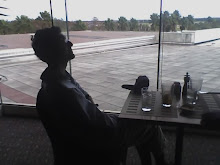First, while the administration fears the 2,000-plus photos, taken between 2003 and 2006, might encourage "a deadly backlash against American troops," a Pentagon source told the Times the images "were not as provocative as pictures of detainee abuse at Abu Ghraib." Question the reliability of the source all you want, but the latter images have been in the public domain for years, and I don't know that they've influenced the Global War on Terror in any tangible way. Meanwhile, if Obama is concerned about the effect pictures might have, why wasn't he equally worried about publicizing words -- namely, words about Bush-era torture techniques at Gitmo? Most bizarrely, in a quote tucked at the bottom of the Times story, Obama claims free speech will lead to censorship: "I fear the publication of these photos may only have a chilling effect on future investigations of detainee abuse."
Why the reversals? It's partly historical. Incoming presidents frequently find it difficult if not impossible to balance their dreams with DC politics -- witness what happened to Bill Clinton's wish to allow gays to serve openly in the military, and George W. Bush's goal to privatize Social Security. And part of it pertains to the specifics of the situation in Iraq and Afghanistan. Quoth the Times:
The administration said last month that it would not oppose the release of the pictures, but Mr. Obama changed his mind after seeing the photographs and getting warnings from top Pentagon officials that the images, taken from the early years of the wars, would “further inflame anti-American opinion” and endanger troops in two war zones.Somewhere, Secretary of State Hillary Clinton and disgraced former vice-presidential candidate John Edwards must be having a little chuckle. One day after Obama launched his successful bid for the presidency in 2007, he said that even before the Iraq War, "it was possible to make judgments that this would not work out well" -- a stance that Reuters called an indirect contrast to that of "presidential rivals Clinton and (Edwards), who both voted to authorize the war in 2002." The recent photo flap reveals that in terms of military policy, candidate Obama may have avoided making a 360-degree turn like Clinton and Edwards ("We voted for the war before opposing it"), but now that he's president, he's finding out the job he sought and won means having to make lots of 180-degree turns.




No comments:
Post a Comment